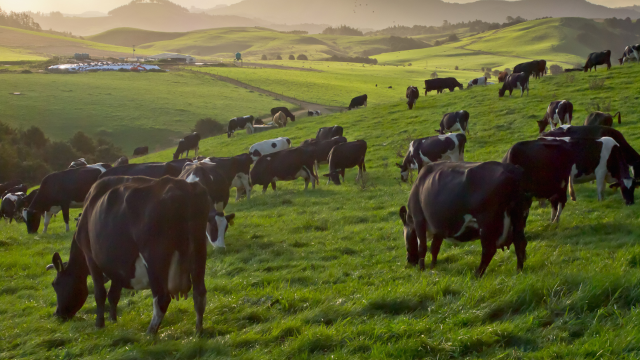Research published in PNAS has revealed that, yes, meats are worse for the environment than other types of food. But how do supermarket foods stack up?
Vegetarianism and veganism are increasing in popularity, largely due to a greater understanding of animal welfare and the environment.
Now, this study reinforces that meat is probably not the best food for environmentally-conscious humans, after analysing food products available at Tesco, a supermarket in England.
In the below figure, you can see which foods have a higher impact on the environment in the Y axis, and which foods have a lower nutrition score in the X axis (based on the English “NutriScore” nutrition value system).

“One barrier to enabling transitions to more environmentally sustainable food systems is the lack of detailed environmental impact information,” the paper abstract reads.
“We provide an initial approach to overcome this barrier using publicly available information to derive first estimates of the environmental impact of over 57,000 food products across four indicators: greenhouse gas emissions, land use, water stress, and eutrophication potential.”
The research paper continues by saying that pairing it with a measure of nutrition shows a tendency for more nutritious foods to be more environmentally sustainable. Like-for-like substitutes, it said, can have highly variable environmental and nutritional impacts.

Nuts, dried fruit, and nutrient powders (in the fruits, vegetables and nuts category) also appeared to have quite a surprisingly high environmental impact: the highest outside of the meats category, in fact. This is because they’re incredibly water intensive.
Additionally, meat and dairy alternatives have a much lower impact on the environment and a higher nutrition score than normal meats.
The researchers hope that the paper will inform policymakers in planning more environmentally conscious food solutions, but we reckon it’s pretty useful for the average consumer to have an understanding of the foods they’re eating and the negative impacts that some may have on the environment.
It’s been known for many years that meats like beef and lamb are bad for the environment. If you’d like a really good explainer on why meat is so bad for the environment, going into the land, dietary and labour issues required, Kurzgesagt has a terrific video on that.
But at some point, we are going to need to transition our food systems to be more sustainable, as the paper outlines. The environment is counting on it.
You can read the research in PNAS.

Comments